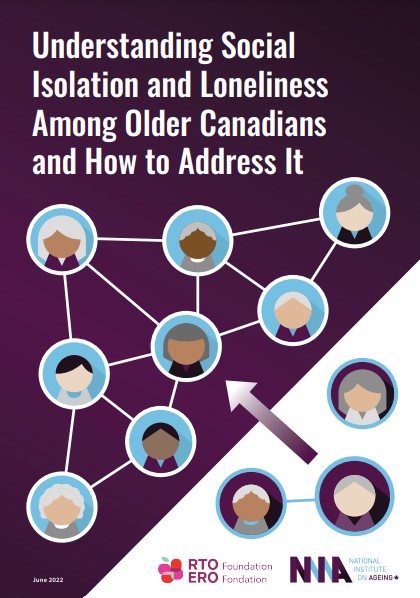 Social isolation and loneliness are increasingly recognized as important public health concerns. Globally, as well as in Canada, these issues have significant implications for the health and well-being of older persons. Older adults are at increased risk of experiencing social isolation and loneliness, and are especially vulnerable to their negative impacts. With older persons making up a rapidly growing proportion of Canada’s population, the number of either isolated or lonely older adults is also expected to increase, meaning that both the individual and societal consequences of loneliness and social isolation are expected to become more severe. As such, it is important to fully understand the prevalence and consequences of social isolation and loneliness in Canada, and to work to implement effective, evidencebased strategies to reduce their impacts and better support healthy ageing. (...). While Canada has launched several national initiatives to address social isolation and loneliness, few sustainable, long-term strategies have been adopted, despite a clear recommendation from the federal government’s National Seniors Council (NSC) to do so almost a decade ago in 2013.
Social isolation and loneliness are increasingly recognized as important public health concerns. Globally, as well as in Canada, these issues have significant implications for the health and well-being of older persons. Older adults are at increased risk of experiencing social isolation and loneliness, and are especially vulnerable to their negative impacts. With older persons making up a rapidly growing proportion of Canada’s population, the number of either isolated or lonely older adults is also expected to increase, meaning that both the individual and societal consequences of loneliness and social isolation are expected to become more severe. As such, it is important to fully understand the prevalence and consequences of social isolation and loneliness in Canada, and to work to implement effective, evidencebased strategies to reduce their impacts and better support healthy ageing. (...). While Canada has launched several national initiatives to address social isolation and loneliness, few sustainable, long-term strategies have been adopted, despite a clear recommendation from the federal government’s National Seniors Council (NSC) to do so almost a decade ago in 2013.
Source: National Institute on Aging
















